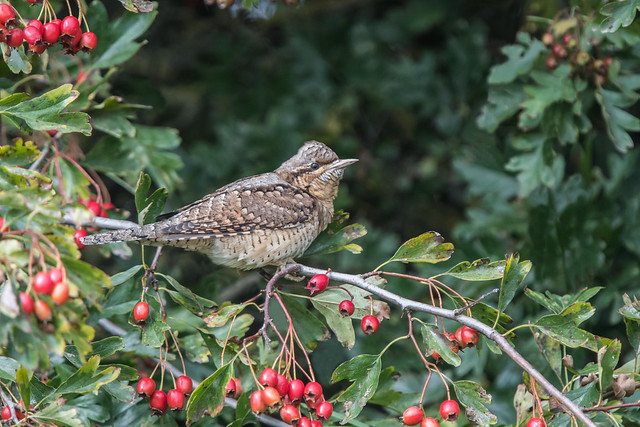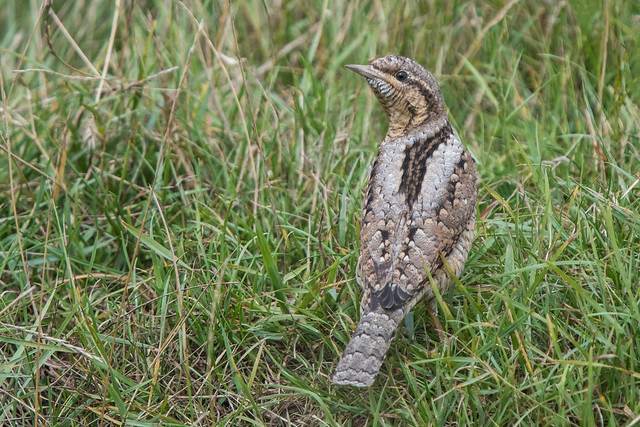
Tim writes: Wrynecks used to breed in Britain and in Victorian times were found in every county in England and Wales south of the Humber. But they had dwindled to extinction by the 1970s while a small population temporarily colonised Scotland, which was way outside its original range. But I don’t think it has bred there since 2002, so is now classed as an extinct breeder in Britain. Fortunately it still breeds in southern Scandinavia so still drifts across the North Sea to arrive in Britain each year, albeit in small numbers. This individual was at Spurn (East Yorkshire) in late August.
The name Wryneck has been in use since at least 1585 and was the standard name in all the early bird books. Wry means twisted (as in a wry smile, and going awry) from the bird’s habit of contorting its neck when threatened. A friend once told me that he went to rescue a bird with a broken neck that had flown into a window. When he arrived it was a stunned, but otherwise healthy Wryneck twisting its neck like a snake and fooling its finder into thinking its neck was broken. By the time he arrived it had recovered and he released it unharmed. Its scientific name is Jynx torquilla, and torquilla comes from the Latin word for twisted, from its serpentine head movements. Jynx is an old Greek word for Wryneck, but named because of an ancient superstition that it could be used as a magical charm to bring back a strayed lover. This was because the Wryneck could twist and turn, so the idea was it could be used magically to turn something back. To achieve this the hapless bird was tied to a string and whirled around the head, or attached to a wheel and turned. Nowadays we use the word jinx to describe something (or someone) who brings bad luck, or as something said when two people say the same word simultaneously.

Tim, really enjoyed these this year, thank you.
Hear, hear!
More next year please.
Agree absolutely with Paul and Bimbling, Tim – every blog has been a pleasure and I’ve learnt something new each time.
Hear, hear, thank you. And isn’t that a great bird.